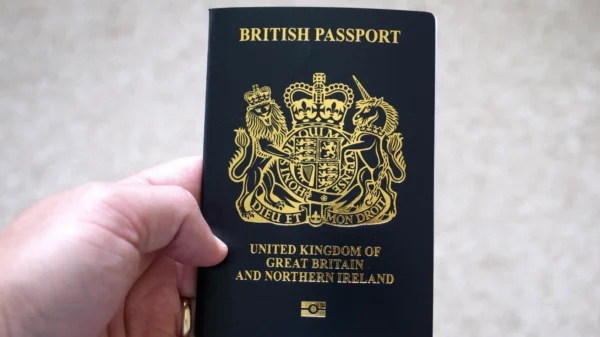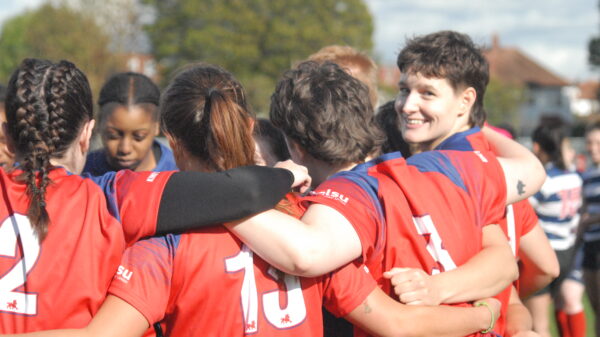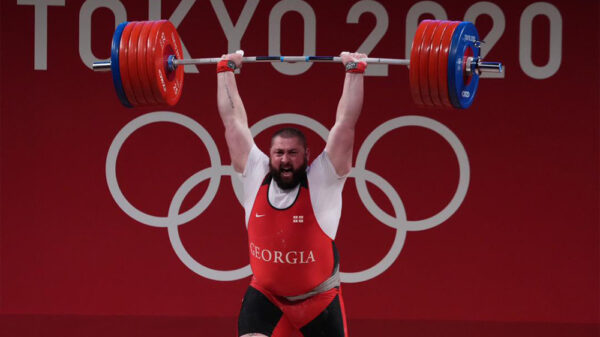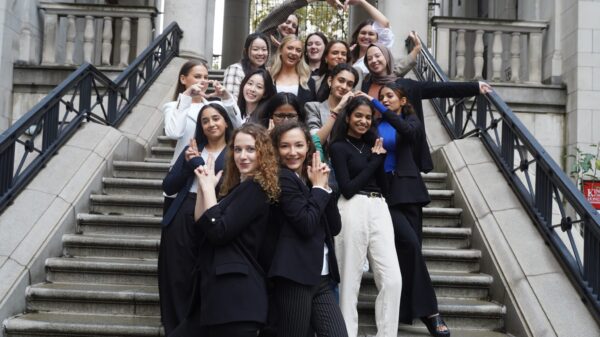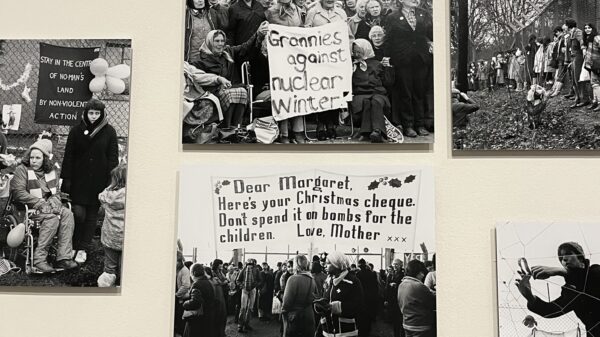Staff writer Grace Holloway asserts that violence against women and girls must change since its declaration as a national emergency on 23 July.
On the 23rd of July, Violence against Women and Girls (VAWG) was finally declared a national emergency in the UK. Three years on from the death of Sarah Everard, that truly shocked the nation, change has not yet occurred. As a country, we have failed to continue to protect women and girls, and we have failed to realise the importance of the gender narrative within the violence occurring on our streets.
From 2013 to 2018, reports of VAWG to the police increased by 37%. In 2023, these crimes accounted for 20% of all police-recorded crimes. While these numbers themselves are worrying, this only accounts for reported violence, with many occurrences of violence remaining unreported.
Shifting the narratives: the Southport riots
In the wake of the Southport riots, a wave of anti-immigration and racist hate has taken over both our streets and social media. Three young girls were killed during a Taylor Swift-themed dance class. Innocent lives were taken far too early, yet their lives are almost ignored.
The misinformation and lies spread across social media channels have changed the narrative of this incident to focus on an anti-immigrant platform, after false speculation about the identity and background of the assailant.
Our society has now become filled with so much colloquial hate. British citizens of colour have been subject to racist abuse and physical abuse as they leave their homes. NHS workers on their way to save lives were attacked in Sunderland. These workers have contributed their share to our economy and society, yet have been discriminated for their ethnicity.
These narratives have been pushed by the far right to polarise British society and push their anti-immigration agenda. However, they fail to address the other problem we face: violence from men targeted at women and girls.
Even when racist groups do acknowledge the VAWG crisis we are facing, it is used as a further attack against certain ethnic groups. Many racist beliefs look to blame men of colour for VAWG, especially placing this assumption on asylum seekers living in our society. Within this incident, the misinformation about the attacker being a brown Muslim man, even though it was later revealed he is a British Citizen of Rwandese descent, fed into this belief that male immigrants are the main perpetrators of VAWG.
This emphasis on blaming a certain race or ethnic group, takes away from the overwhelming increase in violence against women and girls as a whole, which men of all races carry out.
The issue at hand
So far this year, 50 women have died at the hands of men, meaning every three days a life has been taken. This number includes two sisters and their mother who were killed by a crossbow attack by an ex-partner.
This year, including the Southport attack, violence against girls also has increased. An 11-year-old girl was stabbed on 13 August eight times when visiting Leicester Square as a tourist.
Knife crime against women and girls has doubled in more than five years, adding a weapon to the ongoing issues of violence against women. One of the most heart-breaking incidents was the death of Ellianne Adam, aged 15, who died when protecting her friend on the bus to school.
As a country, our knife crime epidemic is not improving and instead is furthering this issue of violence. We cannot forget the innocent lives taken on our streets as a result of knife crime, more needs to be done for the whole of society.
Women and girls as targets
The attacker in the Southport incident targeted a Taylor Swift dance class; a place majorly filled with women and girls. In many incidents it is predominately female spaces being targeted, leading to high female casualties. Think back to 2018, when Ariana Grande took to the stage in Manchester Arena and a shocking terror attack left 23 dead. This concert attracted a majority of female attendees who were watching a female artist.
Women and girls are still being targeted, yet it feels like they are forgotten. Every year for International Women’s Day, Jess Phillips reads in parliament a list of all the women killed by Men. Every year hearts are broken, as this issue never seems to improve.
Jess Phillips and other female candidates were the targets of intimidation and harassment in their recent general election campaigns. Even within a democracy with female representatives, women are not safe from threatening behaviour and criticism.
Even during the Euro’s competition, violence against women, continued to make headlines. Numerous campaigns from female organisations raised awareness that no matter the football match score, whether a desired team loses or wins, domestic abuse would still rise. Women’s Aid launched ‘No More Years of Hurt’, which showed us that when England lost a match, domestic abuse increased by 38%, and even when England won or drew, it would increase by 26%.
Despite changes within our society on attitude to domestic abuse, it is still a massive issue. Many attacks against women come from ex-partners or people they know, with an average of a woman being killed by an abusive or ex-partner every five days in England and Wales. More still needs to be done concerning prosecution and protection of domestic abuse, as well as continuing to support women to come forward.
At the moment, less than 24% of domestic abuse crimes are reported to the police. Out of those reported to the police, many cases are not settled through prosecution. This results in a failing system where changes are rare and victims are less encouraged to come forward.
Rape victims also suffer the same issue, with only 4.1% of all rape cases going to trial in 2023 due to the complex nature of evidence. Victims are not gaining the protection they need, with punishment failing to occur. This needs to change.
Women are not even safe on public transport, with violence against women on UK trains increasing by 50% since 2022. Women even feel unsafe from the Police after the Metropolitan police service was deemed sexist and misogynistic in a report produced by Baroness Casey.
Women and girls are still targeted and this issue is not going away, it is only worsening as we uncover it.
The global issue
Yet this is not just an issue facing the UK, the West still has a lot to improve to protect its Women.
In the United States, violence against women and girls is worsening. Over 1 in 3 women in the US have experienced rape, physical violence and or stalking by a partner in their lifetime. In a country where Women’s reproductive rights are not secure, women are certainly not protected.
Violence in America also has a similar male element attached to it, with 98% of mass shootings committed by men. Similarly to acts of violence within our country, there is a wider issue surrounding the encouragement of violent acts and men’s mental health issues that can cause this behaviour and need to be addressed.
The rest of the world is in a much worse picture. Femicide is at a shocking high; in 2022, on average more than five women or girls are killed every hour by someone in their own family. On estimate, more than one in three women globally, have been subject to physical and sexual violence within their lives.
This is why we need to do more: set an example for the world to follow. Everyone in society should be equally protected.
This must change
Growing up as a girl in this country, our society teaches us to tolerate elements of this behaviour. We are reminded that ‘boys will be boys’, and despite 97% of women aged 18-24 experiencing sexual harassment; it is our lives that are expected to adapt.
We are taught to be careful where we walk alone and to protect our drinks in public. We are taught to accept what happens when we what really need to push for change. Do we really want the next generation of girls to grow up in fear?
We have reached the point in society where we are finally aware of the issue. Domestic abuse, rape and many crimes against women are no longer normalised and are to some extent punishable by law. But this does not mean everything is better, as these crimes often receive weaker sentences and lower sentencing rates. Many members of society have also still not altered their views on how to treat women.
Our culture needs to change; our society needs to change. With so many people focused on making attacks on the politics of immigration, we are failing to address the issues that impact our women and girls domestically.
When viewing violent attacks such as the Southport incident, we need to think back to the whole identity of the attacker and the victims: not just their race and their background, but their gender. Men rioting on the streets and shifting the narrative is forcing the lives of these girls to be forgotten and moving away from the issue of VAWG.
Change can also be encouraged by giving increased widespread media attention to issues of misogyny and femicide. By making people more aware and educated about the current issues we face, we can hopefully bring about changes in people’s attitudes.
To bring long-lasting change, sentencing and prosecutions also need reforms. Women need to feel that there is a reason to come forward: more rape and sexual assault cases need to go to trial and result in harsher sentences.
Violence within men needs to change, and more needs to be done to prevent this behaviour. Violence against Women and Girls needs to be stopped. In a world where women are finally beginning to achieve equality, our lives should be protected too.




